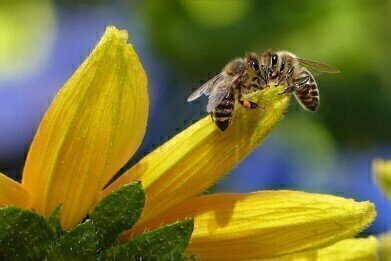Flow Level Pressure
How Will Fracking Impact British Wildlife?
Oct 23 2016
Fracking may be saluted as the future of oil and gas, but it also goes hand in hand with a storm of controversies. Most notably, environmental concerns. In the UK, pressure to fast-track fracking projects is mounting. Though according to new research published in the Journal of Applied Ecology, the majority of proposed British fracking sites have high biodiversity counts, and are rich in species that are essential to maintaining a healthy ecosystem.
Fracking vs Fauna
Specifically, almost two thirds of the sites have been identified as wildlife rich regions that perform a host of crucial functions, from pest control and pollination to decomposition and conservation. With such a high percentage of shale gas extraction sites supporting biodiversity levels that are equal to or above the national average, green-lighting all the projects could trigger major consequences for both local, and national wildlife.
“A lot of the areas that have opened up to shale gas licensing actually harbour much higher than average levels of biodiversity,” comments the University of Reading’s Tom Oliver, a senior author of the report. “We only have one natural heritage and we have to protect it and so using these data to highlight those very valuable sites and to facilitate their protection is hopefully a useful thing to do.”
A meticulous method
To calculate just how at-risk Britain’s biodiversity is, Oliver and his colleagues drew on previously collected records documenting over 5,500 species of plants, birds, insects, butterflies and other animals. Data was gathered by volunteers from 1970 and 2013, and includes references to climate, geology and other factors. Researchers then divided Britain up into 10km by 10km squares, and used results to allocate a biodiversity rating to each proposed fracking site. The results were then published on an interactive digital map, which is open to the public.
Oliver and his team maintain that this fine-grained method offers environmental scientists an accurate glimpse at Britain’s biodiversity, and will help to optimise locations for large infrastructure projects, as well as pinpoint areas in need of environmental conservation.
“[Priority species] are often used as indicators in these environmental assessments and we’re showing that actually our new method allows us to incorporate a whole suite of other species, thousands of more common species, which are just as important really,” explains Oliver.
Support from RSPB
The RSPB was quick to support the study, with head of policy and advocacy Abi Bunker describing it as “an important piece of research that uses the UKs wealth of biodiversity data collected by volunteers to add to our understanding of the risks that come with fracking.” It supports the organisation’s bid to impose a government ban on fracking in Sites of Special Scientific Interest, and introduce stricter regulations across the board.
Not only is fracking controversial from an environmental perspective, but it’s also raised economic questions. For more insight into how fracking has impacted the oil and gas industry, ‘Who is Manning the Cash Register?’ explores the recent drop in crude oil and natural gas prices, and the role fracking has played.
Digital Edition
PIN 25.1 Feb/March
March 2024
In This Edition Safety - The technology behind the ION Science Tiger XT - Safety with ammonia and LOHCs as hydrogen carriers Analytical Instrumentation - Discussion on new tribology te...
View all digital editions
Events
Apr 28 2024 Montreal, Quebec, Canada
Apr 30 2024 Birmingham, UK
May 03 2024 Seoul, South Korea
May 05 2024 Seville, Spain
May 06 2024 Riyadh, Saudi Arabia


















